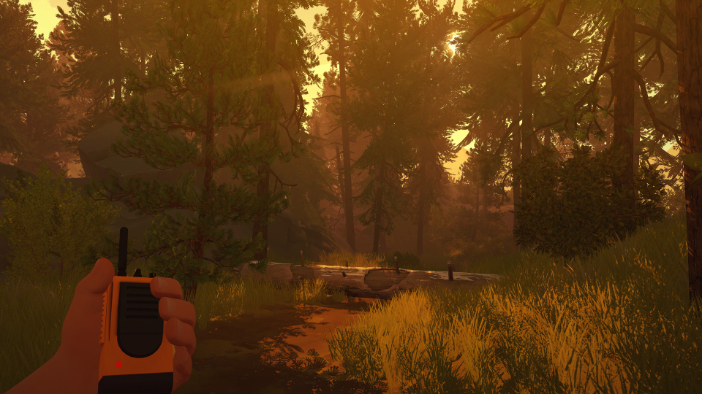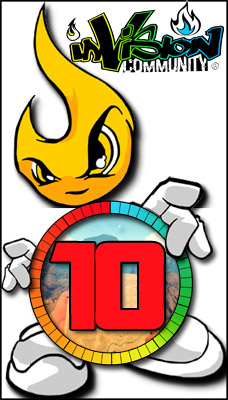Indie games have come such a long way since the initial revolution of independent games a little less than a decade ago that new releases have become part of everyday life in the industry. Most indie games focus a lot on snazzy new mechanics and shiny graphics to impress gamers into buying their game, but because of the always improving quality of AAA games, Indies have now begun searching elsewhere for their selling point. Enter Firewatch.
Developed by Campo Santo, Firewatch, is a first person game focusing on Henry, a watchman located in a forest. Following quite a difficult relationship with his wife, Henry decides the best way to deal with his issues is to relocate to somewhere quiet, somewhere remote. This is why his new job as a forest guardian is perfect for him as he is now living all alone in a cabin among the peace and tranquillity, disturbed only by your boss, who talks quite a lot. The two communicate with each other through walkie talkies, which also become a substantial part of the main gameplay elements.
Gameplay wise, Firewatch is very simple to understand. You are assigned different orders through the walkie talkie, asking for example to check out something which may not be in the usual course of the day. Interacting with the walkie talkie is also a core mechanic of the game, as explained slightly above, since you can choose what your reply will be out of three options or sometimes two. You are also prompted to use your walkie talkie to pass comments or observations about things in the forest as you go on and about, such as a beautiful view or a closed cave.
One of the things which I liked the most about Firewatch is the fact that there is no exact minimap to guide you around. You just have a compass and you use that to move between locations. The game provides neat checkpoints which will be very useful to remember where everything is. For example the medicine wheel situated to the bottom of the tower is one of the first places you will learn, and will come in very handy when navigating through the map.
Visually, Firewatch is stunning. It is not beautiful in the sense of fidelity and cutting edge resolutions, but how the environment is drawn and coloured. The game is dominated by a lot of red and orange, appropriately after the name of the game after all. It makes the game stand out, and the way the game is designed really matches the decision of the colouring in the game. The simplistic design of the game also complements the colouring choices since everything is kept very tidy and clean, yet at the same time it never feels underdeveloped or that there is more work to do. From the musical side of things, Firewatch does not boast some incredible 40-track song list, yet it still manages to convey the feelings of a large playlist of songs. The general mood that the music sets is of peace, relaxation, tranquillity. The same feeling which Henry seeks to get from his new workplace.
If all the above aspects are not enough to win someone over and go play Firewatch, the storytelling definitely will. The script is so good and the game feels so well written that it is a shame that it is ultimately a game and will have an ending. The opening sequence of the game took my breath away in the best way possible, and urged me to continue playing the game. If anyone is not sold after playing this game for more than an hour, then either that being is heartless or has given up on games for ever.
Firewatch is the classic example of an amazing game developed by independent developers. The main selling point of the game lies in something directly obtained by actually playing it not just looking at graphics or performing a shiny new move, no matter how cool it may look. Thankfully, Firewatch did get quite some press because of its gameplay trailer which made the rounds on IGN and made me fall in love with the game. If anyone has not yet tried this, I can assure you, this game is worth every cent spent, and at its current price, it is definitely a steal.















You must be logged in to post a comment.